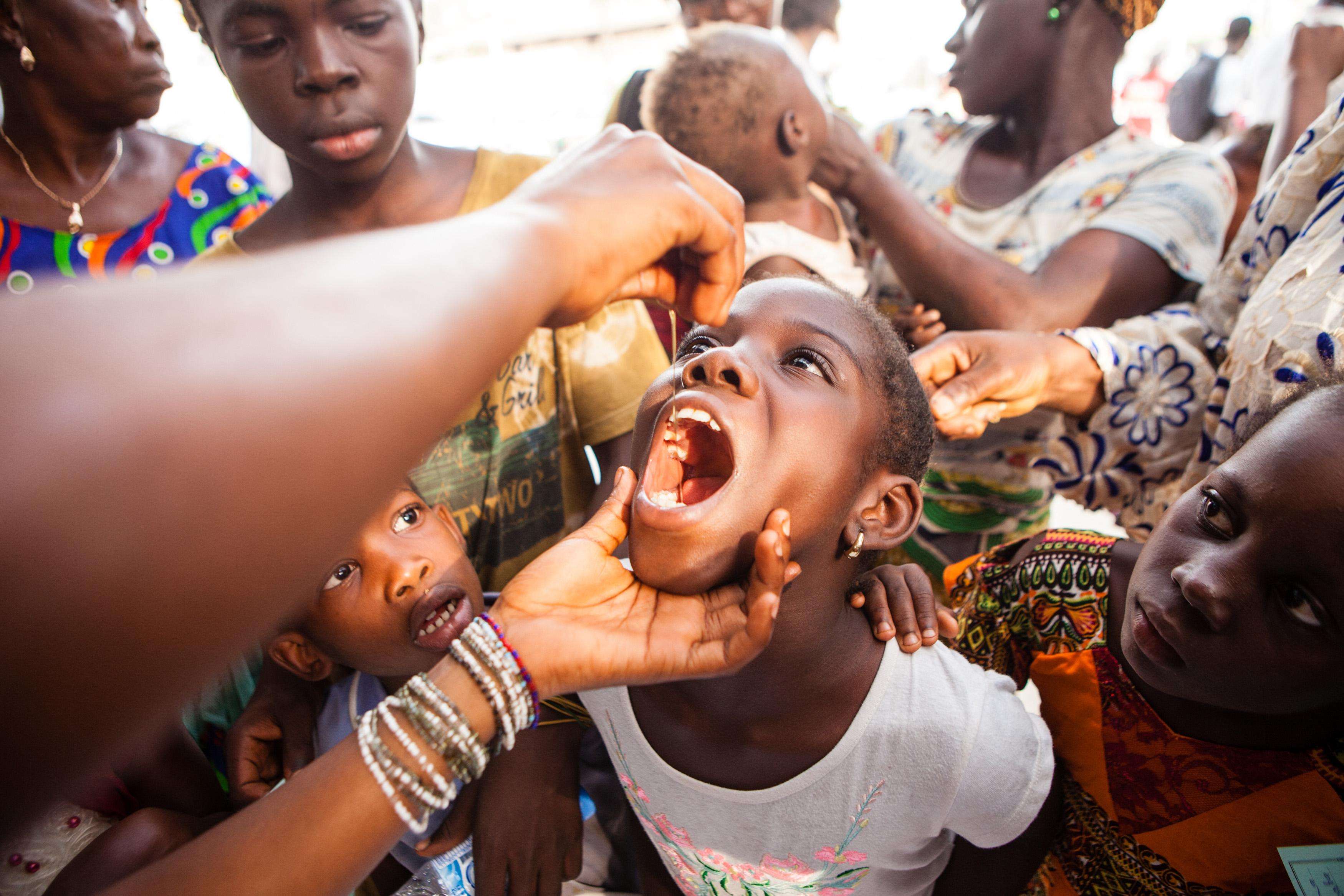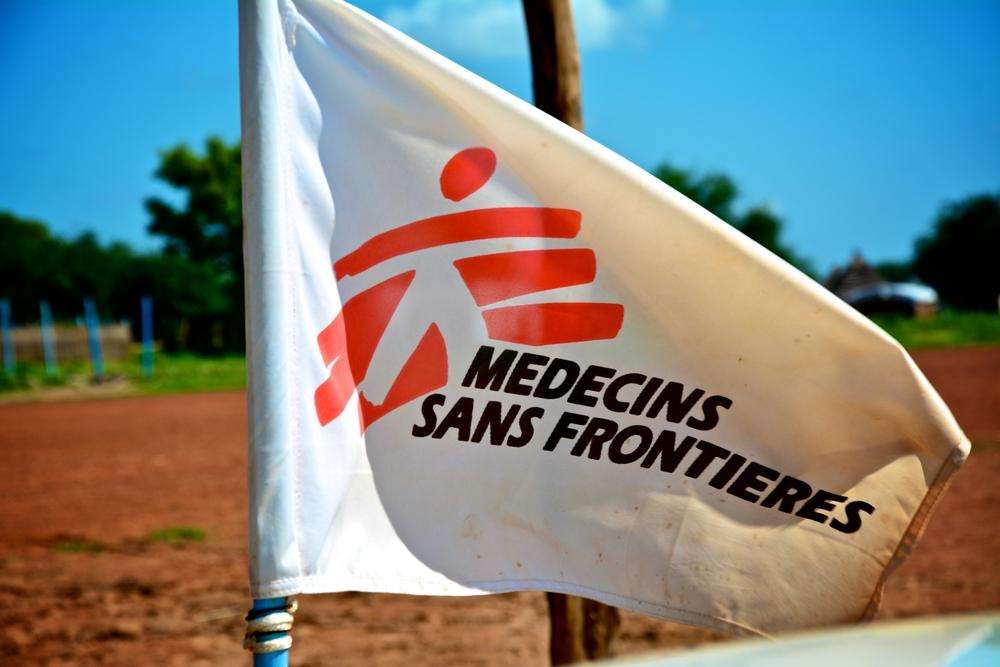Less than a year after the official end of the Ebola outbreak, the Guinean health system continues to struggle.
NEW YORK/CONAKRY, GUINEA, APRIL 7, 2017—The international medical humanitarian organization Doctors without Borders/Médecins Sans Frontières (MSF), along with the Guinean Ministry of Health (MoH), is launching today a large-scale measles vaccination campaign in Conakry. Since the beginning of the year there have been 3,468 confirmed cases and 14 deaths dues to measles in Guinea, with most cases in the Conakry and Nzérékoré districts.
Routine vaccination in Guinea was drastically reduced during the 2014-2015 Ebola epidemic, both because most resources and attention were geared towards the management of Ebola and, mainly, due to fear. People stayed away from health facilities, and vaccination activities were suspended because of infection risks, leaving thousands of young children unprotected against easily preventable diseases. A nation-wide vaccination campaign was organized by authorities one year ago for children who had missed or never received their vaccines. Despite this catch-up effort, a measles epidemic was declared on February 8, 2017.
“The fact that a new epidemic occurs barely a year after a massive vaccination campaign is a worrying sign of the weakness of health care in Guinea,” said Ibrahim Diallo, MSF’s representative in Guinea. “Major problems remain in the health system, undermining its capacity to prevent and respond to outbreaks effectively and timely.”
After the devastating Ebola epidemic that killed over 11,000 people and severely affected the health systems of the three most affected countries—Guinea, Sierra Leone, and Liberia—the World Health Organization (WHO) and leading public health experts insisted on the importance of rebuilding responsive health systems in the three countries and equipping and supporting them to better manage similar or new health crises.
According to the United Nations (UN) body in charge of Ebola response, only 18 percent of the funds disbursed to support the countries during the Ebola outbreak were meant for recovery. International donor commitments to strengthen health systems has focused on improving disease surveillance to assure early detection and response to outbreaks, such as Ebola. However, today, faced with a large outbreak of measles, MSF in Conakry and Alima in Nzérokoré district are currently the only non-governmental organizations providing support to the MoH for the vaccination campaign in the worst affected districts. WHO and UNICEF have pledged support to other affected districts across the country, though it is still under discussion.
“If Ebola was a wake-up call, since then the world seems to have fallen back asleep,” said Dr. Mit Philips, MSF’s health policy analyst. “As shown by this measles outbreak, the concrete impact of the promises of funding, support and training made during and after the Ebola crisis still remain to be felt by ordinary Guineans. The country is still facing today the same problems that it was facing then, largely alone, in spite of the international public commitments to build better and more responsive health systems."
To contain the measles epidemic, MSF and the MoH in Conakry is mobilizing 126 teams of 13 people, spread out across 164 vaccination sites in the city of three million people. All children from six months up to 10 years old will be vaccinated over the next nine days. MSF also supports 30 health centers in Conakry to care for children suffering from mild cases of measles, as well as a hospital referral center for severe cases.
From the beginning of the recent Ebola epidemic, MSF responded in the worst affected countries—Guinea, Liberia, and Sierra Leone—by setting up Ebola treatment centers and providing services such as treatment and care, psychological support, health promotion, surveillance, and contact tracing. MSF has been working in Guinea since 1988 and has previously assisted in outbreaks concerning cholera and measles. It is currently providing HIV and tuberculosis services in collaboration with the MoH, supporting treatment to around 9,000 HIV patients. The organization closed its Ebola-related activities supporting survivors in Guinea last September.





